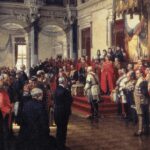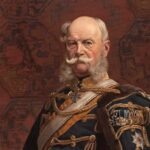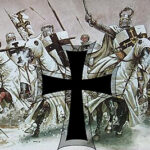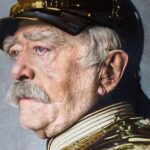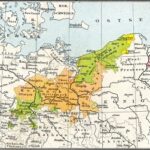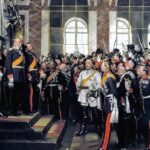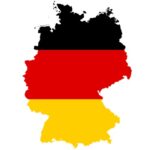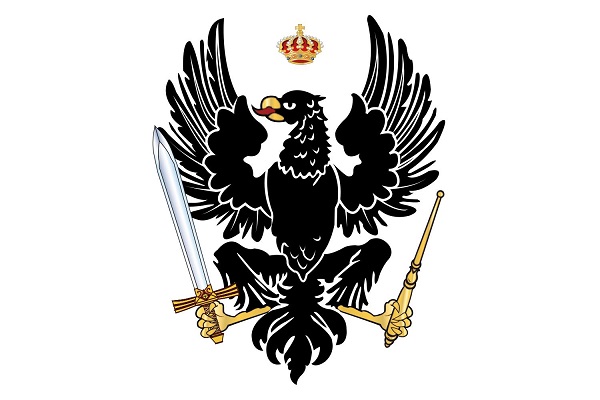
Before Germany became a unified empire in 1871, there was Prussia—a powerhouse of discipline, precision, and iron will. While today the name Prussia has vanished from maps, its influence still echoes across German history. From its militarized society and brilliant rulers to its role as the engine behind unification, Prussia helped create the modern German state.
Let’s take a deep dive into the state that set the stage for one of Europe’s greatest transformations.
What Was Prussia and Where Did It Come From?
Prussia began as a Baltic frontier conquered by the Teutonic Knights in the 13th century. Originally populated by pagan Prussians (unrelated to modern Germans), the land was gradually Germanized and Christianized. In 1525, the Teutonic Order’s Grand Master converted to Lutheranism and became Duke of Prussia, turning the land into a secular duchy.
In the early 17th century, Prussia merged with Brandenburg, a powerful electorate within the Holy Roman Empire. The combined state of Brandenburg-Prussia laid the foundation for what would become the Kingdom of Prussia in 1701 under Frederick I.
Though fragmented geographically, Prussia began consolidating power through clever marriage alliances, military strength, and economic development.
The Rise of a Militarized State
Prussia’s reputation as a military state was no accident. It was crafted over generations by rulers who saw war not as a last resort—but as a tool of policy.
- Frederick William I (the “Soldier King”) transformed Prussia into a standing army with a state attached. He slashed royal spending, invested in training, and made military service a pillar of Prussian identity.
- His son, Frederick the Great, used that army to turn Prussia into a European power.
Prussia had:
- One of the largest and best-drilled armies in Europe
- A centralized bureaucracy modeled on military efficiency
- A national culture that prized obedience, order, and discipline
As Voltaire once quipped: “Where some states have an army, the Prussian Army has a state.”
The House of Hohenzollern: Royal Architects of Empire
The ruling dynasty of Prussia, the Hohenzollerns, played a crucial role in shaping Prussia’s identity and its eventual leadership of Germany.
- They ruled Brandenburg since the 15th century
- Crowned themselves Kings in Prussia in 1701
- Elevated Prussia from a provincial power to a continental heavyweight
Frederick the Great expanded Prussia through bold wars and reforms. He centralized power, promoted education, encouraged religious tolerance (for Protestants, Catholics, and even Jews), and brought Enlightenment ideals to governance—without letting go of absolute monarchy.
Prussia in the 18th and 19th Centuries
From 1740 onward, Prussia was involved in nearly every major European conflict:
- War of Austrian Succession (1740–48)
- Seven Years’ War (1756–63) – where Prussia survived against incredible odds
- Napoleonic Wars (1803–1815) – where Prussia first collapsed, then rebounded
After its defeat by Napoleon, Prussia embarked on deep reforms under generals like Scharnhorst and Gneisenau. They modernized the army, introduced universal military service, and launched educational and administrative reforms that would later support unification.
Prussia vs Austria: The Battle for German Leadership
Following the Congress of Vienna (1815), Germany existed as a Confederation of 39 states under Austria’s presidency. But Prussia was the rising star. It used:
- Economic influence via the Zollverein (customs union)
- Railroads and industry to link and modernize the north
- Military pressure to win dominance in 1866 during the Austro-Prussian War
The victory over Austria marked the end of the old German order and signaled Prussia’s dominance. It created the North German Confederation, a stepping stone toward empire.
Read more: The Unification of Germany: How Bismarck Built a Nation
Prussian Culture: More Than the Military
While known for discipline, Prussia also led cultural and educational advancements:
- First state with compulsory education
- Birthplace of influential philosophers like Immanuel Kant
- Emphasis on civic duty, public service, and intellectual achievement
The Prussian school system became a model across Europe and even inspired reforms in the U.S.
Bismarck’s Prussia: From Kingdom to Empire
By the 1860s, Otto von Bismarck was appointed Chancellor of Prussia. A political genius, he leveraged Prussia’s military and administrative strengths to:
- Defeat Austria (1866)
- Defeat France (1871)
- Unite Germany under Prussian leadership
The German Empire, founded in 1871, was dominated by Prussia. The Kaiser was the King of Prussia. Most of the army, bureaucracy, and parliament came from Prussian structures.
Prussia After Unification and Its Decline
Though Prussia remained the core of the empire, its identity gradually merged with broader German nationalism.
After World War I, the monarchy fell, but Prussia remained a powerful state within the Weimar Republic. It was later dissolved by the Nazis, and finally abolished officially in 1947 by the Allied Control Council.
8 Fascinating Facts About Prussia
- It once bordered 11 different countries—making it one of the most geopolitically complex states in Europe.
- Prussian blue is a synthetic dye first created in Berlin; it became an iconic pigment in art.
- The Pickelhaube (spiked helmet) became a symbol of German military tradition.
- Frederick the Great was gay—many historians believe his marriage was political only, and he kept close relationships with male companions.
- Prussia had one of Europe’s first welfare systems—a precursor to Bismarck’s national model.
- Berlin became a cultural powerhouse under Prussian rule.
- The Prussian drill is still studied in military academies.
- Prussia had its own unique dialects and legal codes, many of which influenced later German law.
Why Prussia Still Matters Today
Even though Prussia no longer exists as a state, its fingerprints remain:
- Germany’s civil service, education system, and military all carry Prussian DNA
- Bismarck’s realpolitik and statecraft were rooted in Prussian ideals
- The balance between federalism and centralization in Germany still echoes Prussian structures
Understanding Prussia is essential to understanding how modern Germany functions and how European politics evolved.
Prussia didn’t just prepare the ground for German unification—it shaped how that unification looked, worked, and functioned. From brilliant battlefield victories to social reform, from cultural advancements to hardline bureaucracy, Prussia’s legacy is undeniable.
Before there was Germany, there was Prussia. And in many ways, there still is.
Related Articles:
